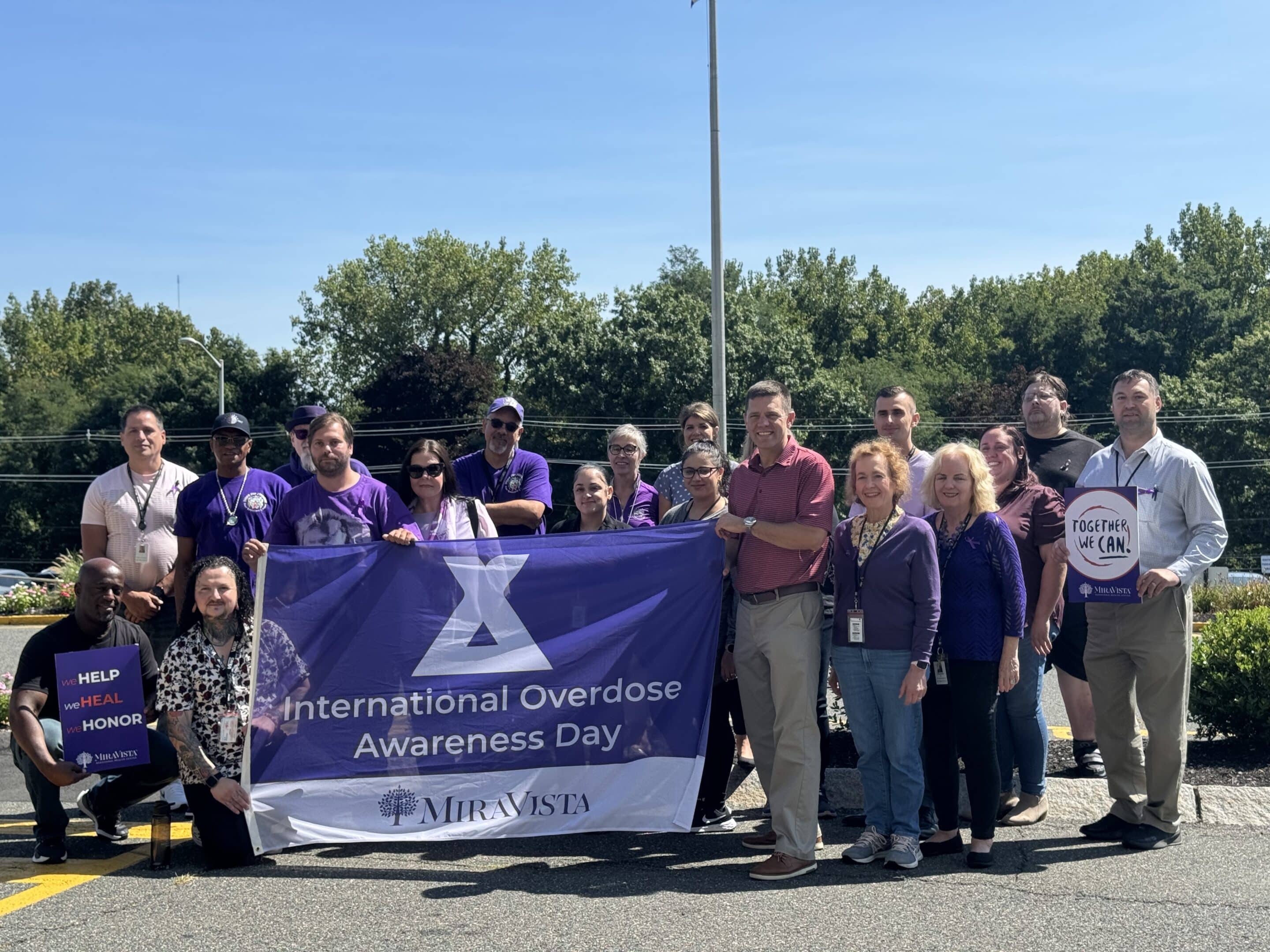Members of MiraVista and Hope for Holyoke pose with attendees before the flag raising.
Reminder Publishing photo by Trent Levakis
HOLYOKE — MiraVista Behavioral Health Center was the site for an observation in Holyoke on Aug. 30 for International Overdose Awareness Day, the annual recognition of the worldwide campaign to end overdose, remember without stigma those who have died and acknowledge the grief of family and friends left behind.
Led by Hope for Holyoke and MiraVista, a flag raising ceremony was hosted at the health center in remembrance of those who have lost their lives to overdose, to support those affected and raise awareness about overdose prevention.
“We stand united in a cause that is both urgent and deeply personal. This day is dedicated to remembering those we have lost to drug overdose, to acknowledge the profound families and friends left behind and to spread the hopeful message that the tragedy of overdose death is preventable,” said MiraVista Behavioral Health Center Chief of Creative Strategy and Development Kim Lee. “At MiraVista Behavioral Health Center, we are committed to transforming despair into help. Our approach is comprehensive, designed not only to treat addiction but to nurture overall wellbeing and reconnect individuals with their communities and people’s lives.”
Lee said the day was not only for remembrance, but also for action to advocate for policies that support recovery and innovate treatment approaches.
In attendance showing his support was state Sen. John Velis (D-Westfield), who spoke about his sobriety and former struggles with addiction.
Velis said, as the chair of the Mental Health, Substance Use and Recovery Committee in the State House, he loves tackling the challenges the country faces in these areas. He added it’s important to let people know of the resources that are out there for help, and that the most courageous thing people struggling with mental health or addiction can do is ask for help.
“Too many people who struggle from this thing still have that shame, still feel that lack of dignity. They don’t want to come forward. It’s sad, it’s heartbreaking,” Velis said.
Velis also said another big stigma in this world is the stigma that exists within the recovery community. He shared that in getting sober himself, the 12-step abstinence program worked, but that is not going to be everyone’s experience getting sober and others in recovery need to me mindful of that to eliminate another stigma.
Following Velis was MiraVista recovery services client Ryan Specht who spoke about his sobriety and experience overcoming drug addiction. Specht has been a recovery services client without relapse since 2018 and advocates for those struggling with addiction.
“I overdosed twice before I got clean. It’s been a pretty rocky road. I hope by sharing my story it will let others know there is a light at the end of the tunnel,” said Specht. “There is no one face behind heroin or fentanyl or whatever illicit drug is being used. All kinds of people from all backgrounds and professionals have addiction and that is not their fault. This is what more people need to understand — it is a disease — so people seeking treatment can be seen as people, too. There is nothing shameful about getting help.”



